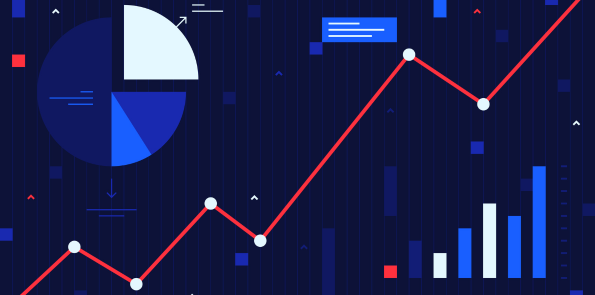Forex Trading 101: Essential Education for Beginner Traders

Market Research
Forex Trading 101: Essential Education for Beginner Traders
Introduction
Forex trading, also known as foreign exchange trading, is the process of buying and selling currencies on the foreign exchange market. With a daily trading volume of over $5 trillion, it is by far the largest financial market in the world.
For beginner traders, forex trading can appear complex and intimidating. However, with the right education and guidance, anyone can learn to navigate this exciting financial market. In this article, we will provide essential education for beginner forex traders, covering key concepts, strategies, and tips to get you started on your trading journey.
Understanding Forex Basics
Before diving into the world of forex trading, it is crucial to understand the basics. Here are some key concepts every beginner trader should be familiar with:
1. Currency Pairs
In forex trading, currencies are always traded in pairs. The first currency in the pair is called the base currency, while the second currency is the quote currency. For example, in the EUR/USD currency pair, the euro (EUR) is the base currency, and the U.S. dollar (USD) is the quote currency.
2. Bid and Ask Price
The bid price is the price at which you can sell the base currency, while the ask price is the price at which you can buy the base currency. The difference between the bid and ask price is called the spread, which represents the cost of the trade.
3. Leverage and Margin
Leverage allows traders to control larger positions with a smaller amount of capital. It is expressed as a ratio, such as 1:100, which means that for every dollar in your trading account, you can control $100 in the forex market. Margin is the amount of money required to open and maintain a leveraged position.
Developing a Trading Strategy
Having a well-defined trading strategy is crucial for success in forex trading. Here are some key steps to develop a trading strategy:
1. Set Clear Goals
Define your trading goals and objectives. Are you looking to generate a consistent income or make long-term investments? Understand your risk tolerance and time horizon to create a strategy aligned with your goals.
2. Learn Technical Analysis
Technical analysis involves studying historical price charts and using various indicators to forecast future price movements. Familiarize yourself with common technical indicators such as moving averages, RSI, and MACD to identify potential trading opportunities.
3. Practice Risk Management
Implementing proper risk management is essential to protect your capital. Set stop-loss orders to limit your potential losses and determine a risk-reward ratio for each trade. Stick to your risk management plan, even in times of market volatility.
4. Stay Informed
Keep up with the latest news and developments that can impact currency prices. Economic indicators, geopolitical events, and central bank decisions can all have a significant impact on the forex market. Stay informed to make informed trading decisions.
Tips for Beginner Traders
As a beginner trader, here are some additional tips to help you navigate the forex market:
1. Start with a Demo Account
Before risking real money, practice trading on a demo account. This will allow you to familiarize yourself with the trading platform and test your strategies without the risk of losing money.
2. Begin with Small Positions
When you start trading with real money, begin with small positions. This will allow you to manage your risk and gain confidence in your trading abilities. As you become more experienced, you can gradually increase your position sizes.
3. Keep a Trading Journal
Maintain a trading journal to track your trades and analyze your performance. Record details such as entry and exit points, reasons for entering the trade, and the outcome. This will help you identify patterns, strengths, and weaknesses in your trading strategy.
4. Learn from Successful Traders
Study the strategies and techniques of successful traders. There are numerous educational resources available, including books, courses, and online forums. Learn from their successes and failures to improve your own trading skills.
Conclusion
Forex trading provides a unique opportunity for individuals to participate in the global financial markets. With the right education and guidance, beginner traders can develop the skills and knowledge necessary to succeed in this exciting field. Remember to start with a solid understanding of the basics, develop a well-defined trading strategy, and continuously learn and adapt to the ever-changing market conditions. Happy trading!


